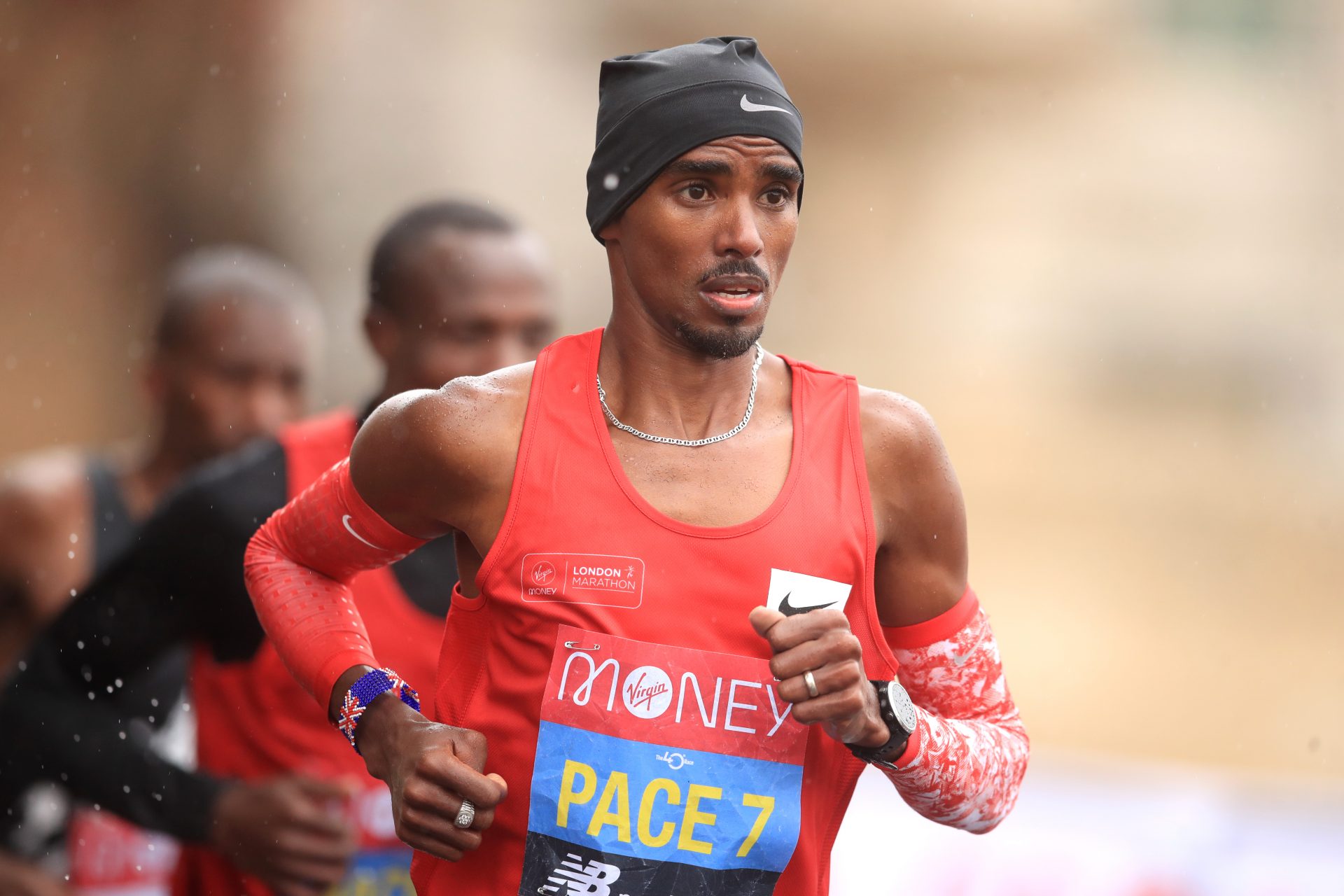
There’s a reason why caffeine is the go-to supplement for many athletes. Here’s how coffee can enhance your workout and help you smash your 5km PB.
It’s a truth universally acknowledged that caffeine increases alertness and energy levels, but could a cup of coffee pre-workout also have athletic benefits too?
Coffee is one of the most commonly consumed – and popular – mind-altering drinks worldwide. It’s used by millions of us to kickstart our sluggish morning brain function and pick us up throughout the day. And research suggests that if you drink coffee an hour or so before exercise, it could also help boost your performance.
“The caffeine in coffee stimulates your central nervous system, elevating your heart rate, increasing blood pressure and even releasing adrenaline,” explains Megan Thomas, sports scientist for Amunra Performance Coffee – a scientifically designed coffee containing the optimal dosages of caffeine to maximise both performance and recovery.
“All these factors combine to increase motivation, focus and excitement, improve blood flow around the body and to muscles worked during exercise, while reducing how difficult you perceive the exercise to be – enabling you to push harder for longer,” she says.
The performance-enhancing effects of caffeine have actually been studied for over 100 years, with the first known study on the subject published in 1907, and now many of the world’s leading athletes – including Mo Farah – drink coffee as a pre-race staple.
“Twenty minutes before a race I’ll normally drink some coffee,” writes Farah in his autobiography Twin Ambitions. “As I walk onto the stadium track, I feel this massive caffeine high.”

You may also like
Coffee actually does solve all our problems, according to science
How drinking coffee before exercising can improve your workout
1. Coffee increases metabolism
According to a new study published in the Journal of the International Society of Sports Nutrition, drinking strong coffee – or taking caffeine – half an hour before aerobic exercise can increase fat-burning.
The study tested 15 active men after completing an exercise test four times at seven-day intervals. They took 3 mg/kg of caffeine or a placebo, 30 minutes before each test, at 8 am and 5 pm.
The research revealed that taking a dose of caffeine 30 minutes before working out increased fat oxidation during exercise, regardless of the time of day. But, the rate of fat-burning was higher in the afternoon than in the morning.
2. Coffee increases endurance and enhances athletic performance
Caffeine enables athletes to train longer and with greater power output. It’s also been shown to improve endurance levels and resistance to fatigue.
According to a 2010 study from the Journal of the International Society of Sports Nutrition caffeine is an effective ergogenic aid for sustained maximal endurance activity and has also been shown to be very effective for enhancing time trial performance.
A study from the British journal of sports medicine revealed regular coffee drinkers were 4.2 seconds faster than those drinking decaf over a 1,500-meter run. While another study found that coffee helped reduce the perception of effort, allowing athletes to work harder.
You may also like
Mediterranean diet: increase endurance and recover quicker with omega-3s and healthy fats

3. Coffee aids recovery and reduces muscle pain
Foods such as red wine, dark chocolate, berries, tea and coffee contain polyphenols – micronutrients found in plant-based foods. Various studies have shown that polyphenols can reduce inflammation, enhance recovery and reduce delayed onset muscle soreness.
In fact, a small study from the Journal of Pain found that two cups of coffee helped reduce exercise-induced pain and delayed-onset muscle injury after testing nine college-aged females. While a University of Rhode Island study also showed that caffeine significantly reduced post-workout muscle soreness when compared to a placebo.
“Studies have shown that caffeine helps increase carbohydrate metabolism after exercise, which basically means your muscles can replenish their energy stores better and more efficiently with caffeine,” explains Thomas.
“Coffee also contains natural compounds called polyphenols, which are becoming increasingly interesting from a recovery point of view as they seem to improve blood flow and recovery, reducing inflammation and DOMS (delayed onset muscle soreness). Amunra was specifically developed to deliver 180mg +- 10mg of caffeine, and also high levels of Polyphenols – this helps optimise both performance and recovery.”
4. Coffee increases alertness
Caffeine is a natural stimulant, and various studies have shown time and time again how coffee can boost mental focus, alertness and general cognitive function. Ergo when your thinking is sharp, your workouts become more productive and effective.
Are there any cons to drinking coffee before working out?
The research is clear: caffeine is an effective ergogenic aid. But the impact coffee has on your body can be both good and bad.
“Caffeine, as with so many things, is fine in moderation,” says nutritionist Jennifer Medhurst. “But why should we limit it? The main reason is that caffeine increases cortisol production, and cortisol is the body’s master stress hormone; it curbs functions that would be non-essential or detrimental in a fight-or-flight situation. While some stress is good, four or five cups of stress a day for life is not so good.”
If you have too much caffeine there can be side effects
Be warned, if you drink too much coffee over a short period of time, you may experience symptoms, including (but not limited to): restlessness, anxiety, dizziness, upset stomach and insomnia.
“Coffee does have some negative side effects such as jitters, anxiety, and even fatigue,”says Medhurst – who suggests adding l-tyrosine to the mix, “to helps stabilize your mood while you enjoy the perks of a caffeine boost”.
Try a drink like Mind by Indi as an alternative to coffee prior to exercise, she says, “which combines caffeine and l-tyrosine, as well as a ton of other exercise supporting nutrients”.
People can tolerate varying amounts of caffeine
Remember, caffeine affects people in different ways. So just like some people can happily drink coffee and then fall asleep immediately, for others, caffeine will keep them wide awake and jittery at night. The same goes for exercise. You might find that you can tolerate a lot of caffeine – and be able to sip on it just before a workout class – or you might need to wait a full hour before exercising to let it digest properly.
Caffeine levels can vary hugely between cups of coffee
Some cups of coffee might not be much stronger than tea, while others could be four or five times as strong. “Different coffees will have different levels of caffeine and how you brew your coffee will also affect the caffeine levels,” adds Medhurst.
You may also like
Benefits of caffeine: does tea have more caffeine than coffee?
When should you drink coffee before exercising?
General caffeine guidelines recommend the consumption of 3–6 mg/kg of caffeine, typically 60 min before the start of exercise.
But some studies have shown that caffeine can be taken as little as 20 min before, and up to 90 min before exercise. Thomas agrees: “The optimum time to drink coffee is anywhere from 20 minutes to up to 90 minutes before exercise, it really depends on the person and the type of exercise.
“Caffeine takes around 20 minutes to start affecting the body, I like having it about 30 minutes before I exercise. If you’re cycling, 20-30 minutes might work for you, whereas if you’re doing a lot of burpees or exercises where you’re jumping all over the place maybe wait a bit longer so you don’t have as much liquid in your stomach,” she adds.
The majority of the studies show that plasma caffeine levels stay elevated for up to three hours after consumption. So, it’s best to avoid it after about 3pm, says Medhurst, “so it doesn’t affect your sleep”.
How much coffee should you drink?
“The optimum dose of caffeine is around 180mg for most people for the maximum performance benefit,”says Thomas. “However, it does depend on each person, some people are genetically more/less tolerant to caffeine, so this dose may be too much, or not enough. 180mg provides most people with the right amount to optimise the performance-enhancing mechanisms.”
Follow @StrongWomenUK on Instagram for the latest workouts, delicious recipes and motivation from your favourite fitness experts.
IMAGE: GETTY
Source: Read Full Article